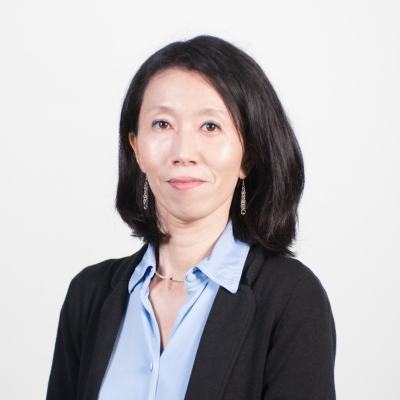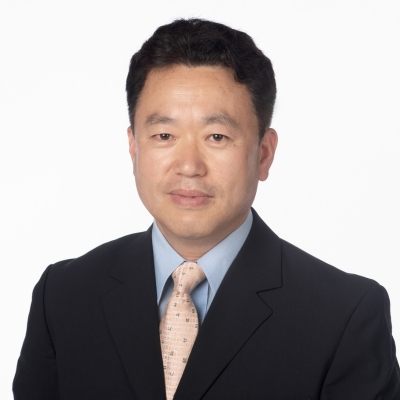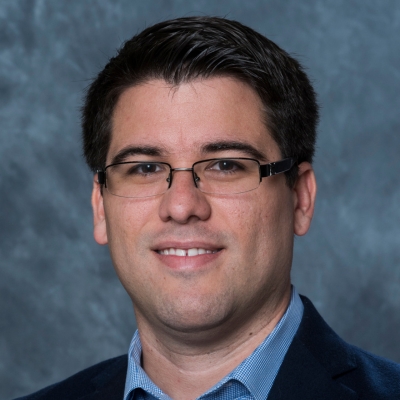Ten Ivan Allen College of Liberal Arts faculty members will be promoted to associate professor, achieved tenure, and/or will be promoted to full professor effective Aug. 1.
Promoted to professor
 Shatakshee Dhongde, School of Economics
Shatakshee Dhongde, School of Economics
Dhongde’s research lies in the field of economics of poverty. She is one of the first scholars to provide consistent estimates of multidimensional poverty in the United States over time. A multidimensional approach to measuring poverty includes deprivations in dimensions such as education, housing, or health which are often not captured by income levels. Her research has been published in leading economics journals. In particular, her research on measuring multidimensional poverty in the United States has been highlighted in the national media, including NPR.
She received her Ph.D. from the University of California, Riverside. She is also a research affiliate with the Institute of Research on Poverty at the University of Wisconsin, Madison. She was awarded the Nancy and Richard Ruggles Prize for young researchers by the International Association of Review of Income and Wealth (IARIW). Dhongde is also the recipient of multiple teaching awards at Georgia Tech, including most recently the Dean George C. Griffin Faculty of the Year Award (2022) and the Mary S. and Richard B. Inman, Jr. Faculty Excellence Award (2021).

Stuart Goldberg, School of Modern Languages
Goldberg’s expertise lies in Russian and Polish literature and culture, with a focus on Russian poetry. His latest book, An Indwelling Voice: Sincerities and Authenticities in Russian Poetry was supported by an American Council of Learned Societies fellowship. He has published articles in journals such as Russian Review, Slavic Review, Novoe literaturnoe obozrenie, Russian Literature (Amsterdam), Slavonic and East European Review, and Slavic and East European Journal. In 2005-2006, he was the recipient of a Fulbright grant, funding 11 months of library and archival research in Moscow and St. Petersburg.
Goldberg offers courses on Russian literature, film, and culture in translation and in Russian, for undergraduates and in Georgia Tech's M.S. program in Global Media and Cultures. He has taught all levels of Russian language and designed and directs Georgia Tech's intensive summer immersion program in Riga, Latvia. He also conceived and directed the U.S. Department of Education-funded Georgia Tech Critical Languages Song Project, an innovative curricular development project that brought together faculty designers in Arabic, Mandarin Chinese, Japanese, and Russian and graduate student programmers in Computer Science and Human-Computer Interaction.
 Gordon Kingsley, School of Public Policy
Gordon Kingsley, School of Public Policy
Kingsley conducts research and teaches in the areas of public management, policy implementation, and public policy. His research examines the development and implementation of effective partnerships across the public, private, and non-profit sectors. Current research explores the impacts of partnerships on organization structure and the development and allocation of scientific and technical human capital. This work is being conducted in two policy domains examining: 1) public strategies to discern and adapt to the emergence of new technologies; and 2) the creation of transportation infrastructure with a focus on privatization and complex contracting amongst engineering organizations and public agencies.
His research appears in journals such as the Journal of Public Administration Research and Theory, Policy Studies Journal, Public Administration Review, Public Organization Review, Public Performance and Management Review, Research Policy, Review of Policy Research, Transportation Research Part D: Transport and Environment, Journal of Environmental Management, Review of Public Personnel Administration, State and Local Government Review, Journal of Technology Transfer, ASCE: Journal of Engineering Management, Evaluation and Program Planning, and Research Evaluation. He has served as a consultant or researcher for the National Science Foundation, the Georgia Department of Transportation, the Manufacturing Extension Partnership of the National Institute of Standards and Technology, the National Research Council, the Office of Technology Policy in the U.S. Department of Commerce, the Office of Science in the U.S. Department of Energy, and many more.
 Kyoko Masuda, School of Modern Languages
Kyoko Masuda, School of Modern Languages
Masuda is a specialist in Japanese Discourse, Second Language Acquisition, Cognitive Linguistics, and Sociocultural Theory. Her work has been published in journals including East Asian Pragmatics, Journal of Pragmatics, Modern Language Journal, New Directions in Applied Linguistics of Japanese, Japanese Language and Literature, Sophia Linguistica, Nihongo Kyooiku, Southwest Journal of Linguistics, CLS, Sophia Linguistica, NINJAL Research Papers, and Japanese/Korean Linguistics. She has co-edited Cognitive Linguistics and Sociocultural Theory: Applications to Language Teaching (2015), and edited Cognitive Linguistics and Japanese Pedagogy: A Usage-based Approach to Language Learning and Instruction (2018).
Masuda has served as program director of Japanese language since 2020. She received her Ph.D. from the University of Arizona in 2002, joined Georgia Tech in 2004, and was promoted to associate professor of Japanese and linguistics in 2010. She is currently working on a book project entitled "Concept-Based Language Instruction: Usage-Based Linguistics and Sociocultural Theory in Teaching Japanese," with Amy Ohta and Rie Tsujihara for Routledge Publishers.
 Robert Rosenberger, School of Public Policy
Robert Rosenberger, School of Public Policy
Rosenberger is president of the Society for Philosophy & Technology and one of the central developers of the “postphenomenological” philosophical perspective. His research in the philosophy of technology explores the habitual relationships people develop with everyday devices, with applications in design and policy. This includes lines of research into the driving impairment of smartphone usage, the educational advantages of computer-simulated frog dissection, the roles of imaging devices in scientific debates, and the critique of hostile design and architecture (especially anti-homeless design).
His edited and co-edited books include Postphenomenological Investigations: Essays on Human-Technology Relations, Postphenomenology and Imaging: How to Read Technology, Philosophy of Science: 5 Questions, and The Critical Ihde. His monographs include Callous Objects: Designs Against the Homeless, and Distracted: A Philosophy of Cars and Phones.
Awarded tenure
 Yongtaek Kim, School of Modern Languages
Yongtaek Kim, School of Modern Languages
Kim is an associate professor in the School of Modern Languages. He received his Ph.D. in Linguistics from the University of Oregon in 2009 and joined Georgia Tech as an associate professor of Korean in 2017. His research focuses on 1) The interrelation between how we perceive a situation in the external world and construe it as an event structure in a conceptualized world for linguistic encoding; 2) Contrastive linguistics between Korean and Japanese using cognitive and historical linguistic approaches; and 3) The application of cognitive linguistics to foreign language teaching.
His current teaching encompasses all levels of Korean language courses and various Korean content courses, such as Korean History via Media, Korean Culture and Society, and Intercultural Seminar. In Fall 2019, Summer 2021, Fall 2022, Summer 2023, and Fall 2023, his excellence in teaching was recognized through inclusion in the Class of 1934 CIOS Honor Roll. He has served on the Fulbright U.S. Student Program National Screening Committee since 2021.
Promoted to associate professor and awarded tenure
 Lindsey Bullinger, School of Public Policy
Lindsey Bullinger, School of Public Policy
Bullinger’s research examines how public policies affect child and family health and well-being, especially among low-income families. Her work has been published in American Journal of Health Economics, Journal of Health Economics, Journal of Policy Analysis & Management, Contemporary Economic Policy, Review of Economics of the Household, Economics & Human Biology, Annals of the American Academy of Political and Social Science, Housing Policy Debate, Child Abuse & Neglect, Children and Youth Services Review, Health Affairs, BMC Pediatrics, Health Services Research, American Journal of Public Health, JAMA Pediatrics, and Maternal and Child Health Journal.
She is a faculty affiliate with the Children's Pediatric Research Alliance at the Children's Healthcare of Atlanta, Georgia Tech's Center for Health and Humanitarian Systems, and the Wilson Sheehan Lab for Economic Opportunities at the University of Notre Dame. She is on the editorial board for the Journal of Policy Analysis & Management. Her research has been funded by the U.S. Department of Health and Human Services, Foundation for Opioid Response Efforts (FORE), Doris Duke Charitable Foundation, Horowitz Foundation for Social Policy, Spencer Foundation, Cash Transfer Lab at NYU, and Pew Charitable Trusts.
 Alberto Fuentes, Sam Nunn School of International Affairs
Alberto Fuentes, Sam Nunn School of International Affairs
Fuentes is a scholar of global development whose work focuses on the political economy of industrial change in Latin America. He pays particular attention to the role of state-business relations in the industrial policymaking process. His research has appeared in journals including Latin American Research Review, Socio-Economic Review, Business and Politics, Anuario de Estudios Centroamericanos, and World Development.
Fuentes obtained his Ph.D. from the Sloan School of Management at MIT, and holds a master’s degree in City Planning from the Department of Urban Studies and Planning at MIT. Fuentes is co-director of Georgia Tech’s Global Development Minor and is jointly appointed as an assistant professor in Georgia Tech’s School of City and Regional Planning. He became an assistant professor in the Nunn School in 2016.
 Robert Gonzalez, School of Economics
Robert Gonzalez, School of Economics
Gonzalez’s major fields of interest are development economics and public economics. Specifically, his research focuses on the role of information-communication technologies (ICTs) and the use of novel GIS data and methods to study conflict, crime, and public health.
His most recent work studies the role that access to cellphone technology can play on fragile settings: deterring election fraud in fragile security environments such as that of Afghanistan, containing the spread of disease during the 2014 West Africa Ebola epidemic, and explaining patterns of insurgent violence in Afghanistan. As part of his research, he has done fieldwork in India, Liberia, and Brazil. Prior to joining the faculty at Georgia Tech, he was an assistant professor in the department of economics at the University of South Carolina. He obtained his Ph.D. in economics from the University of North Carolina-Chapel Hill in 2016.
 Anne Sullivan, School of Literature, Media, and Communication
Anne Sullivan, School of Literature, Media, and Communication
Sullivan, head of the StoryCraft Lab at Georgia Tech, received her Ph.D. in Computer Science from the University of California, Santa Cruz, where she created an artificial intelligence framework to support playable stories - stories that adapted and changed based on player choice. Before returning to school for her Ph.D., she was a game developer and designer with experience at AAA studios and as an independent developer.
Her research focuses on playful and storied interactive experiences from a feminist and humanistic perspective, with an emphasis on human-centered artificial intelligence (AI). Sullivan has established herself in the fields of critical game analysis through her work in the feminist analysis of games, and co-creative AI through her work in educational interactive experiences and AI-assisted tools for craft and narratives. She also studies craft as an analog counterpart to playful and storied interactive experiences, researching in the exciting and emerging field of computational craft. Sullivan is an award-winning quilter and the concept designer and producer of Loominary – a digital game system controlled with a loom - which has been shown internationally, including at the SAAM Arcade exhibit at the Smithsonian American Art Museum.
